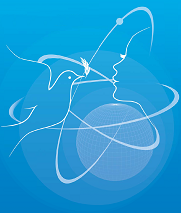Speaker
Gabriela Ramos
(OECD)
Description
Why aren’t there more women working in the Nuclear field? OECD data can reveal some of the answers: when students are asked about the kind of career they expect to pursue as young adults even those girls who envision pursuing scientific careers expect to work in fields that are different from boys. Girls are over-represented among students who expect to work in the health and social fields; boys are over-represented among 15-year-olds who expect to work as engineers or computer scientists, despite the fact that girls and boys show similar performance in science at school. Parents are also much more likely to expect their sons rather than their daughters to pursue these careers, even when their performance in mathematics is equally good. This has direct consequences: 14% of young women who entered university for the first time in 2012 chose science related fields, including engineering, manufacturing and construction. By contrast, 39% of young men who entered university that year chose to pursue one of those fields of study. These findings have serious implications not only for higher education, where young women are already under-represented in the science, technology, engineering and mathematics fields of study, but also later on, when these young women enter the labour market.
Author
Gabriela Ramos
(OECD)

